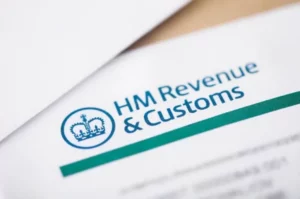Sometimes it’s confusing as to how to pay a director. Yes, being a director is an exciting prospect. You own a company and can steer it in any direction you wish.
You are in full control of how it’s run and how it operates. Receiving your first pay from the company can be even more exciting, especially if the business is doing well.
One thing that some find a bit confusing, however, is how a director gets paid. You are seen as an employee of the company, but you don’t have a contract of employment.
How should a director be paid?
It’s important to remember that, unlike a sole trader, a limited company is a separate legal entity from yourself. With a sole trader, the profit is your income, but the same does not apply to the company. You can take money from the company, but it has to be done through an appropriate method.
There are two main ways a director can be paid:
- PAYE (Pay as You Earn)
- Dividends
When and how much is paid is largely down to the business itself, but there can be tax advantages of using one more than the other (we recommend speaking to an accountant about this).
PAYE (Pay as You Earn)
PAYE is the basic way to pay a director. The scheme is operated by HMRC to collect taxes from employees. This is how you would normally receive your pay if you were in any other form of employment.
You would run a payroll, submit your figures to HMRC and pay you the net amount (your pay minus taxes).
You will first need to register for the PAYE scheme. HMRC will then issue you with an office account and PAYE reference. Once you have this, you will need to start submitting reports known as Real Time Information (RTI) on or before each payday about each employee. But don’t panic! Director Payroll Ltd can deal with this for you.
Directors are treated in a similar way to other employees with PAYE, but there are different methods to calculate the National Insurance that needs to be paid.
There are two methods to choose from – the standard method or the alternative method.
You can learn more about both methods on the Gov UK website, but if you’re unsure, it may be worth checking with an accountant.
How to use dividends to pay a director
Unlike PAYE, dividends are only used to pay shareholders. If you’re a director, there’s every chance you’re also a shareholder.
What is a dividend?
A dividend is paid to shareholders when the company has made a profit. Typically, it’s paid once or twice a year, but it can be more often.
It is up to the directors if and when to pay a dividend, and it is outside of any payroll process.
How do I issue a dividend?
There are a few points to the basic procedures for issuing dividends:
- The company has enough profit available to allow the dividend to be paid.
- Call and arrange a meeting of the directors and minute the decision and details of the dividend.
- Issue the dividend payment and the tax vouchers. File the board minutes and accounts
Dividends have their tax advantages and disadvantages; it’s always worth checking with your accountant before making decisions.
Should I use PAYE or Dividends to pay a director?
It’s a good question, but the answer depends on the circumstances in your company. In fact, many individuals chose to use a combination of the two. If you use a combination, Director Payroll Services can help you.
Remember to always seek advice if you’re unsure we are happy to help. Contact us today.



